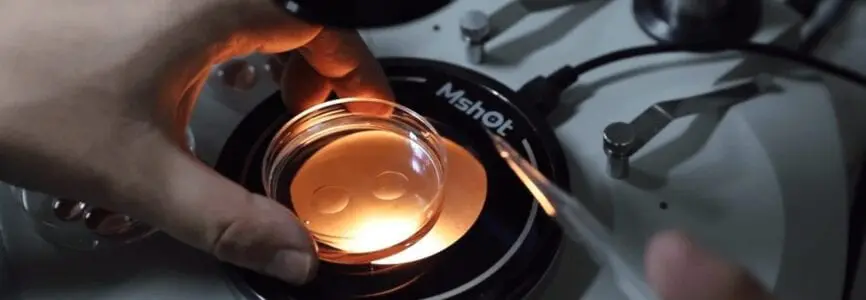Bioethics Forum Essay
He Jiankui: A Sorry Tale of High-Stakes Science
In response to news of the world’s first babies born in China from gene-edited embryos, Sam Sternberg, a CRISPR/Cas9 researcher at Columbia University, spoke for many when he said “I’ve long suspected that scientists, somewhere, would rush to claim the ‘prize’ of being first to apply CRISPR clinically to edit the DNA of human embryos, and use those embryos to establish pregnancies, but still, I’m shocked to find out it’s allegedly happened this quickly.”
There is considerable irony in Sternberg’s “shock” at the birth announcement by He Jiankui of the Southern University of Science and Technology in China, insofar as modern science (and especially frontier science) encourages competition, rewards high-performance (typically measured in terms of publications in high-impact journals, research dollars from prestigious granting agencies, lucrative patents, and promising start-ups), and celebrates “firsts” often with considerable pomp and ceremony. For chemistry, physics and physiology the most prestigious of these accolades is the Nobel Prize. As Ben Hurlbut, of Arizona State University, has remarked, He was “acting in line with” a scientific culture “that puts a premium on provocative research, celebrity, national scientific competitiveness, and firsts.”
In this high-stakes science environment, scientists fear being scooped, and there are no prizes for being second. Indeed, one need look no further than the critical yet originally unlauded contributions of Rosalind Franklin, whose X-ray diffraction data lead to a Nobel Prize for James Watson and Francis Crick. Or, consider the recent patent dispute between the University of California, Berkeley and the University of Vienna, and the Broad Institute of MIT and Harvard over the work of CRISPR pioneers Jennifer Doudna and Emmanuelle Charpentier, and Feng Zhang.
In the interest of being first, and garnering fame and fortune, He did much of the research leading up to the birth of the genome-edited twins in secret. As a result, few knew what he was doing, and fewer still were aware of his plan to create genetically modified humans. The lack of transparency prevented He from benefitting fully from the insights of others, including scientists and ethicists, who might have cautioned him against racing ahead of his peers, but more importantly racing ahead of society.
We are not alone in criticizing our contemporary ways of doing science. Kevin Esvelt, an evolutionary biologist at Massachusetts Institute of Technology who studies CRISPR/Cas9 in conjunction with genetic technologies like gene drives, has long pushed for more transparent, collaborative, and open science. “Openness and collective oversight would reduce the risk of an accident involving gene drive, and may mitigate the backlash from such a disaster, while accelerating—not impeding—discovery,” Esvelt writes in Science.
Esvelt is famous for his community consultations on Nantucket Island and Martha’s Vineyard, where he has proposed research that would make the local white-footed mice immune to the bacteria that causes Lyme disease. These consultations epitomize the view that, as the National Academies of Science, Engineering, and Medicine report on gene drives put it, “Experts acting alone will not be able to identify or weigh the true costs and benefits of gene drives.” Transparency not only creates opportunities for various experts to improve science, it also creates opportunities for non-experts in civil society to provide scientists with useful feedback.
It appears that He’s foray into genome-editing was motivated by personal ambition, a desire for knowledge, and ostensibly good intentions, as well as professional gain (academic advancement, patents, and awards). And notably, but for the immediate hue and cry from civil society, some of these desires might well have been realized. As evidence of this, Science briefly considered nominating the birth of Lulu and Nana, the alleged gene-edited twins, as one of the top breakthroughs of 2018, but the magazine abandoned this idea almost immediately after the outrage on social media.
One moral of this story is that fast-paced, highly competitive science is fraught with danger. This danger provides good reason to change the way we collectively conduct science, to reward transparent, collaborative and open inquiry. With the advent of open research repositories like BioRxiv.org, there is great potential for science to be more open. In addition, efforts by some journals to offer some form of “anti-scoop” protection (in promising to publish articles whose research may have been published elsewhere while under review with the journal), may be helpful. Clearly, however, a larger “cultural” change is required for such measures to have much impact on how we conduct high-stakes research.
To this end, we and others advocate for ethics being taught with the scientific method. Models for this kind of education are emerging, as universities and research institutes strive for better reproducibility in science through workshops on scientific integrity, such as those held by the European Molecular Biology Organization. These are steps in the right direction. Ultimately, early ethics education is an essential first step in preventing the predictable cycle of public chastisement and post-hoc ethics debate when serious ethical transgressions are made in the pursuit of high stakes science.
Landon J. Getz is a PhD candidate in microbiology and immunology at Dalhousie University in Canada, @LandonGetz. Graham Dellaire is director of research and a professor of pathology at Dalhousie University, @DocDellaire. Françoise Baylis is University Research Professor at Dalhousie University, @FrancoiseBaylis.
Photo credit: The He Lab, YouTube
45% of The Hastings Center’s work is supported by individual donors like you.
Support our work.













